MercoPress. South Atlantic News Agency
Tag: EU's Article 50
-
Wednesday, January 16th 2019 - 05:57 UTC
PM May Brexit deal pulverized by Parliament; Corbyn tables a no confidence vote for this Wednesday
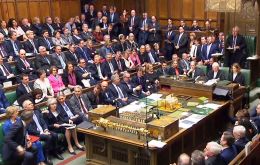
Prime Minister Theresa May's Brexit deal was rejected in Parliament by 230 votes - the largest defeat for a sitting government in history. MPs voted by 432 votes to 202 to reject the deal, which sets out the terms of Britain's exit from the EU on 29 March.
-
Wednesday, December 12th 2018 - 06:28 UTC
Ex PM John Major calls to revoke Brexit and involving parliament and people in “a serious reflection”
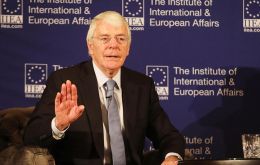
Britain must revoke its notice to quit the European Union with immediate effect to allow for “serious and profound reflection” by both parliament and the people, former Prime Minister John Major said on Tuesday.
-
Monday, September 24th 2018 - 09:18 UTC
Brexit: Labour conference expected to vote keeping “all options on the table”
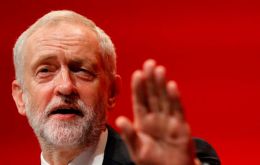
British Labour party members are to vote on keeping “all options on the table” on Brexit, including possibly campaigning for a new referendum at their conference. Party power brokers have agreed on the wording for Tuesday's motion on what the party should do about Brexit if it cannot get a general election.
-
Wednesday, October 4th 2017 - 08:09 UTC
Good Friday agreement must not be damaged by Brexit, says EU parliament coordinator
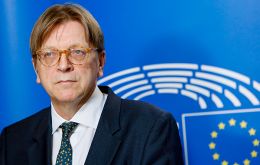
European Parliament's Brexit coordinator has said he got a “shock” on his recent visit to Belfast when he saw the city's peace walls. Guy Verhofstadt described Northern Ireland as having a “frozen conflict”, and said the Good Friday Agreement must not be damaged by Brexit.
-
Tuesday, April 4th 2017 - 07:39 UTC
MPs question UK government's claim that a Brexit “no deal is better than a bad deal”

MPs have warned about the UK and the EU failing to reach a Brexit agreement, urging the government to work out how much “no deal” would cost. The Brexit committee said ministers' claim that “no deal is better than a bad deal” was “unsubstantiated” until an economic assessment was published. But the report divided the cross-party committee, with some members saying it was too pessimistic about Brexit.
-
Thursday, March 30th 2017 - 10:15 UTC
Madrid sends Brexit “message of calm” to Spaniards who work in Gibraltar
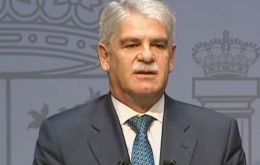
Spain’s Foreign Minister, Alfonso Dastis, has told a leading German newspaper that Madrid will not be taking “any type of punitive measures” at the border with Gibraltar after Brexit. Dastis has made similar statements in recent days to Spanish media, but his comments to Frankfurter Allgemeine Zeitung are the first time he has spoken about the border to the international media.
-
Wednesday, March 29th 2017 - 17:33 UTC
“We already miss you. Thank you and good bye”

In a press conference in Brussels, following the hand-delivered letter, EC president Donald Tusk sent a message to the UK: “We already miss you. Thank you and goodbye.”
-
Tuesday, March 21st 2017 - 06:55 UTC
UK will notify withdrawal from EU on 29 March; talks expected to begin in May

British Prime Minister Theresa May will trigger EU withdrawal talks under Article 50 on March 29, Downing Street has announced. The Prime Minister’s letter officially notifying the European Council of the UK’s intention to quit will set in train a two-year negotiation process expected to lead to Britain leaving the EU on 29 March 2019.
-
Thursday, March 16th 2017 - 05:37 UTC
Scotland will be out of the EU either with UK or independent, PM May tells SNP leader

Prime Minister Theresa May has claimed that Scotland will be leaving the European Union regardless of whether or not it votes for independence. Speaking during an exchange with the SNP's Angus Robertson, Theresa May also warned against “constitutional game-playing”.
-
Tuesday, March 14th 2017 - 11:42 UTC
Brexit bill expected to become law on Tuesday; process to begin end of March
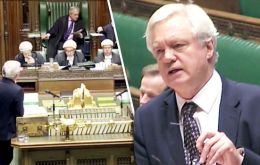
The British Parliament passed on Monday the Brexit bill, paving the way for the government to trigger Article 50 so the UK can leave the European Union. Peers backed down over the issues of EU residency rights and a meaningful vote on the final Brexit deal after their objections were overturned by MPs. The bill is expected to receive Royal Assent and become law on Tuesday.
